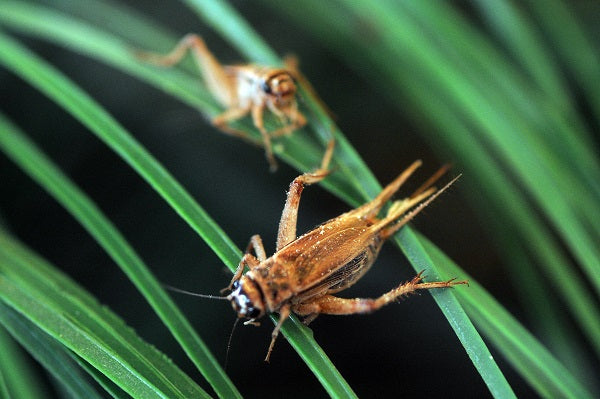Is Eating Bug Protein Safe?
Posted by Anthony Altieri on
When you think of protein sources, what comes to mind? Chicken? Tofu? Beans? What about... insects? You may recoil at the thought, but eating bugs isn't as unusual or dangerous as you might think. In fact, around one-quarter of the world's population incorporates insects into their regular diet. Moreover, the concept of bug protein is increasingly being explored in Western societies, with growing trends in both consumer acceptance and industrial application. But the big question remains: Is eating bug protein safe?
Insects: A Nutritional Powerhouse
Before delving into the safety aspects, let's take a moment to appreciate the nutritional value of insects. They are, in many ways, a powerhouse of essential nutrients. High in protein, low in fat, and rich in vitamins and minerals, insects have all the makings of an ideal food source. In fact, the protein content of certain insects can rival traditional sources like beef and chicken. But nutritional value alone doesn't necessarily equate to safety, does it?
Understanding the Safety of Eating Insects
Just as with any other food source, the safety of consuming insects depends on a variety of factors. These can include the species of insect, its diet, its habitat, the way it's cooked or processed, and individual allergies or intolerances. In general, though, studies indicate that eating insects is relatively safe.
When farmed in controlled environments, insects pose minimal risks related to disease transmission or contamination. They can be safely harvested, processed, and prepared in a variety of ways, from being ground into flour for baking to being roasted as a crunchy snack.
However, certain precautions are necessary. Wild insects should be avoided due to potential exposure to pesticides and environmental contaminants. Insect allergies also pose a concern, as some people may have cross-reactive allergies if they are already allergic to crustaceans or dust mites.
Addressing Cultural Barriers
Perhaps one of the biggest barriers to insect consumption in Western cultures isn't safety, but perception. Despite their nutritional value and the evidence of their relative safety, the "ick factor" persists. Yet, if we can move past these cultural biases, insects may offer an environmentally friendly, sustainable, and nutritious alternative protein source.
In conclusion, while it's always important to consider safety when introducing new foods into your diet, there's substantial evidence that bug protein is safe and nutritious. As our world faces increasing demand for food and sustainable farming methods, it's worth taking a closer look at these tiny protein powerhouses.
References:




 Verified Purchase
Verified Purchase



